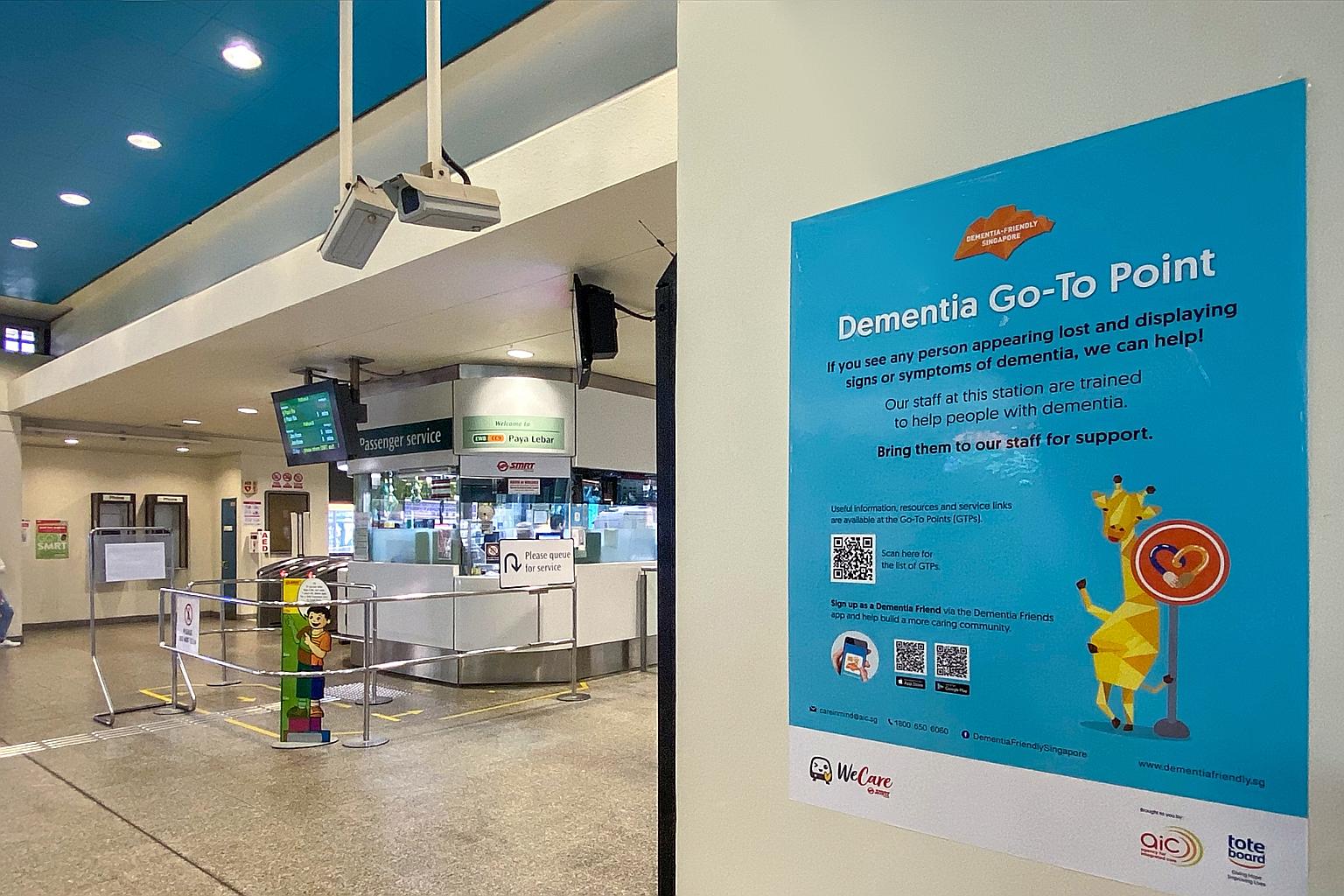SMRT's stations, bus interchanges set to become care centres too
Sign up now: Get ST's newsletters delivered to your inbox

A total of 17 SMRT train stations and five bus interchanges have been listed as dementia go-to points, where the community can learn more about dementia and be linked to dementia-related services.
PHOTO: SMRT CORPORATION
Unable to find your child? Come across a confused senior citizen who cannot remember his address? Go to the nearest MRT station or bus interchange for help.
SMRT is turning its transport nodes into care centres that can better serve those in need in the neighbourhood.
A total of 17 of its train stations and five bus interchanges have been listed as dementia go-to points, where the community can learn more about dementia and be linked to dementia-related services, the company said yesterday.
Over the next two years, SMRT staff will be trained to handle a variety of situations - from administering first aid to finding missing children. These situations are already "commonly encountered within the network", the transport operator said.
Mr Neo Kian Hong, group chief executive of SMRT Corporation, said the initiative was a key part of the operator's service ethos.
Called the Go-To SMRT initiative, the suite of additional services aims to make transport nodes the first place people turn to when they require help.
This effectively broadens SMRT's services beyond its network to serve communities around its MRT stations and bus interchanges, turning these places into care hubs in the community.
There are more than 200 dementia go-to-points spread across the island, tackling a health problem that is expected to worsen as the population ages in Singapore.
Currently, one in 10 Singaporeans aged 60 and above has dementia, which refers to a set of symptoms that include memory problems, as well as mood and behavioural changes.
These often come with age as the brain is damaged by certain diseases, of which Alzheimer's is the most common.
Mr Tan Kwang Cheak, chief executive of the Agency for Integrated Care, said MRT stations and bus interchanges are convenient and accessible points where those with dementia can seek help.
By equipping SMRT staff with the proper knowledge, those with dementia and their caregivers can feel more supported, helping them "live and age well". Staff will also be able to keep a lookout for them.
Also, by working with specialist organisations like the Agency for Integrated Care, the Alzheimer's Disease Association and Singapore Association of the Visually Handicapped, scenario-based training has been added to SMRT front-line staff's curriculum.


